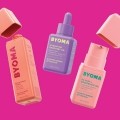'Dermatologically tested' claims misleading
confusing and potentially misleading, say researchers. Health
Which? findings show that there needs to be an industry-wide
definition for what the claim actually means.
Health Which? says the wording found on many cosmetics and toiletries wrongly implies that certain agreed standards have been met. A survey of 1,000 consumers found that people gave several different explanations for the term.
Thirteen per cent of those questioned believed 'dermatologically tested' meant the product was kind to skin, 22 per cent thought it would not cause allergies and 10 per cent thought the product was unlikely to cause skin allergies.
A quarter of those questionned interpreted the claim literally to mean the product had been tested on human skin. But many of those questioned said they did not know what the term meant.
The concern is that the 'tests' may not even replicate how a product is actually used, and the labelling may not explain what the tests were designed to show or whether the product passed the test. The term only implies that the product has reached a certain level of safety or effectiveness.
Each company however has its own procedure for testing a product and deciding what results need to be achieved. Consumers therefore have no way of comparing claims.
Health Which? contacted 10 cosmetics companies to find out what tests they carried out and what evidence they had to support their claims.
Accantia, Beiersdorf, The Body Shop, Boots, Johnson & Johnson, Level Faberge, L'Oreal and Procter and Gamble submitted general information about their testing procedure. But Health Which? said they did not provide enough information for independent experts to assess the claims.
"The research shows that a 'dermatologically tested' claim on one product may mean something completely different to the same claim on another product," said Sue Freeman acting editor of Which?
"This is confusing and potentially misleading. Without standard definitions, and with companies refusing to supply details of their tests and results, these claims are meaningless, and consumers are left guessing about the benefits implied by such claims" she said.
















